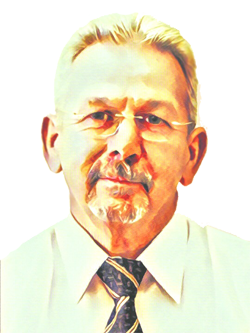

His Highness Sayyid Haitham bin Tareq al Said led the Sultanate’s delegation opening the Abu Al Rayhan al Biruni Library in Tashkent, the capital of Uzbekistan, last Thursday.
It marked the compassionate and cultural awareness of Sultan Qaboos, who, in 2009 displayed such vision and determination to create an appropriate home for the collection of works of a renowned scientist, author and scholar in Abu Al Rayhan al Biruni. Where better than Tashkent, where civilisations, nations, traders and scholars met and shared their knowledge and experiences to build a library, no, more than that, a monument to Islam and the continued pursuit of knowledge and understanding, than at the historic junction of the famous Silk Road?
Central Asia and the Middle East share the responsibility for the retention of that knowledge for future generations, and His Majesty demonstrated significant foresight in creating this resource for the ages, in a compassionate vein, well aware that his insistence could well have been to bring the collection to a ‘safe haven’ such as the Sultanate, but that the right thing to do was to focus instead on the collection’s spiritual home.
After all, Tashkent, a thousand years ago, was where two of the greatest minds the world has ever known, Ibn Sina and Abu Al Rayhan al Biruni were reputed to have consulted frequently, creating a living legacy to the great Ibn Sina. Also known as Avicenna, he of course was then acknowledged as the greatest of his time, and today is revered as the father of modern medicine and philosophy. A physician, astronomer, and author of over 450 books, he was teacher and mentor to many, and he significantly influenced, and was influenced by his contemporary, Al Biruni.
Though Al Biruni worked in the shadow of Avicenna somewhat, their learnings and teachings in many ways complemented each other, with Al Biruni leaning more towards the natural sciences, and in fact was credited with much of Avicenna’s botanical knowledge. Physics, mathematics, and astronomy tempted the young Persian, and he was in great demand for his linguistic, chronological and historical knowledge, often sought out to chronicle family histories and genealogy, and he was fluent in an amazing seven languages.
As a scientist, his peers and contemporaries would often seek his consultation, and if Al Biruni confirmed research or knowledge, it was accepted without question. More than any other though, he loved to travel and write, to observe other cultures and forms of behaviour. A devotee of early Greek philosophical thought, tolerance and common respect, he also travelled extensively throughout Asia, South Asia and South East Asia, producing the first known study of the South Asian cultures known today as Indology.
Al Biruni’s learnings and writings have continued to influence mankind, no more so than through Sohar born, Ibn al Dahabi an absolute devotee of the teachings of Avicenna, and Al Biruni, and renowned as the author of the ‘Kitaab Al Maa’, the Book of Water, even today recognised as remarkably significant in the annals of medicine, describing the benefits of pharmacology, the management of organic, psychological and mental issues. He even promoted blood transfusions as a method of treating specific ailments, and one of the first, outside the Orient, to take chemistry seriously.
Thus has Al Biruni’s legacy spread across time, and in 1973 he was immortalised on a Russian postage stamp. Now, 26,000 manuscripts, and 40,000 rare books, from the golden age of Islamic scholarship, science, medicine, heritage and culture of the last thousand years, have a home. Already recognised as a heritage site by UNESCO due to its historical and cultural importance, the library also has a restoration and preservation department, the envy of all. Al Biruni would have recognised that his writings would need a home, a safe haven, and possibly his memory is appropriately treasured with his writings in the safe custody of the magnificent new library.
For as he wrote, “If the pencil did not leave eternal monuments, where would we have learned of people’s wisdom?”
Ray Petersen-
petersen_ray@hotmail.com -
Oman Observer is now on the WhatsApp channel. Click here



